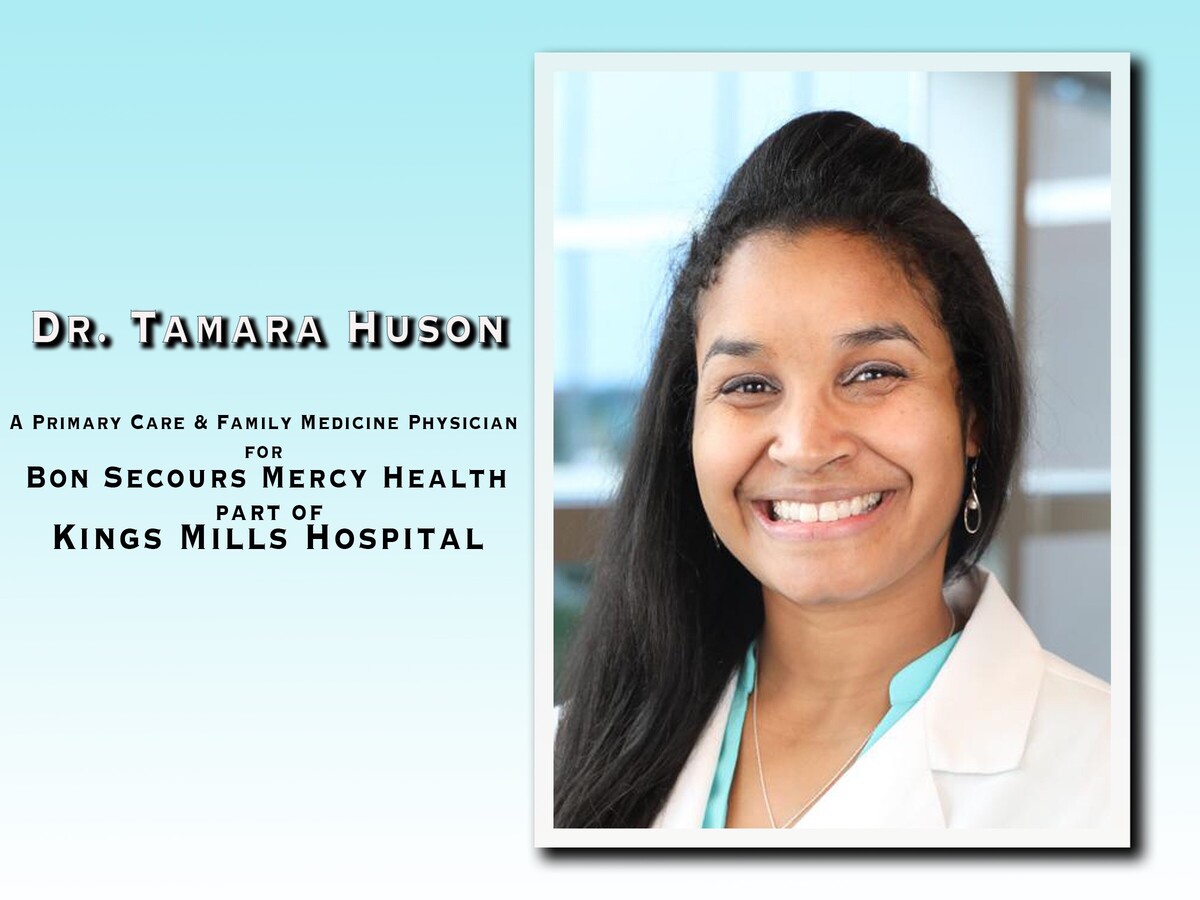Image

KINGS MILLS, OH -- Chances are that throughout October, you’ve seen plenty of pink ribbon campaigns advocating for more research funding, awareness and support in the fight against breast cancer. But just as important in the crusade against breast cancer is education about what to watch for and tips for staying healthy and guarding against risks. It’s a topic that’s especially important to the citizens of Warren County: according to the Ohio Dept. of Health, breast cancer was the leading cause of cancer incidence among women here from 2016 to 2020.
We recently talked with Tamara Huson, M.D., FAAFP, a family medicine physician with the Mercy Health Cincinnati system, which opened a new hospital in Kings Mills in January, to learn more about updated guidelines, misconceptions and more surrounding breast cancer.
Data from the National Breast Cancer Foundation indicates that when it’s caught in its earliest, localized stages, the five-year survival rate for breast cancer is 99%. That’s why early detection is crucial – and it turns out it’s something Ohio women are exceptionally good at: about 72% of female breast cancer cases in the state were diagnosed at an early stage from 2015-2019. So, what should you be looking for?
“One of the things I tell patients is that doctors are experts on medicine, but you’re the expert on your body,” Dr. Huson said. “When you shower or dress, be aware of anything abnormal or different, such as dimpling or puckering of the skin on the breast. Sometimes these symptoms can be best noticed while leaning forward with hands on the waist. Also, any persistently swollen armpit lymph nodes, any non-healing rashes or orange-peel-like changes in the skin, unexplained nipple discharge or inversion (turning inwards), or hard spots in the breast should be reported to a doctor. This also includes breastfeeding women. Basically, the rule of thumb is any lumps, bumps, or anything you have never felt before should be investigated.”
Dr. Huson also pointed out that recently, the recommended age to start getting mammograms was lowered to 40 years old per the U.S. Preventive Services Task Force (USPSTF). Mammograms continue to be the exam of choice for routine screenings, but for women in their 40s who are still having periods, dense breast tissue may require additional testing. This will depend on the result of the initial mammogram and can include a follow-up ultrasound. For individuals with a significant family history of breast cancer, especially those with relatives who experienced cancer in their 20s or 30s, Dr. Huson also recommends considering genetic screening to determine if a mammogram is needed even sooner.
The science behind healthcare is constantly evolving – “A quote I practice by is “Knowledge keeps no better than fish”, so medicine must keep up,” Dr. Huson mused – which is why guidelines change over time and certain misconceptions crop up that should be dispelled.
Dr. Huson shared a few myths she’s encountered with patients regarding breast cancer screening. “I get asked a lot about MRIs, especially for younger patients with dense breasts. While this is an option, the data/evidence to conclusively prove the efficacy of this type of imaging are still evolving and MRIs are costly and not reasonably accessible to everyone. Instead, I direct patients to seek evidence-based mammograms and, if the results are abnormal, to complete recommended follow-up diagnostic imaging (which then may include MRI).”
Dr. Huson also pointed out that for people with larger breasts, you don’t automatically need screenings earlier or more frequently than the recommended age of 40 just because of cup size.
Additionally, anyone who has undergone breast augmentation still needs to follow the recommended guidelines of routine screenings. Newer surgeries layer breast implants under the muscle and the breast tissue above is still susceptible to cancer. This can and should be evaluated with a mammogram. A special mammogram can be ordered which accounts for the implant in place.
There are plenty of factors that inform your risk for cancer, but there are likewise lots of options out there for monitoring your health and seeking treatment should you need it. In the end, it comes down to diligence. If you are 40 and up or have a notable family history of the disease, consider making breast cancer screenings a regular part of your self-care routine. For more information, please visit www.mercy.com or ask your primary care doctor about what you can do to stay healthy.